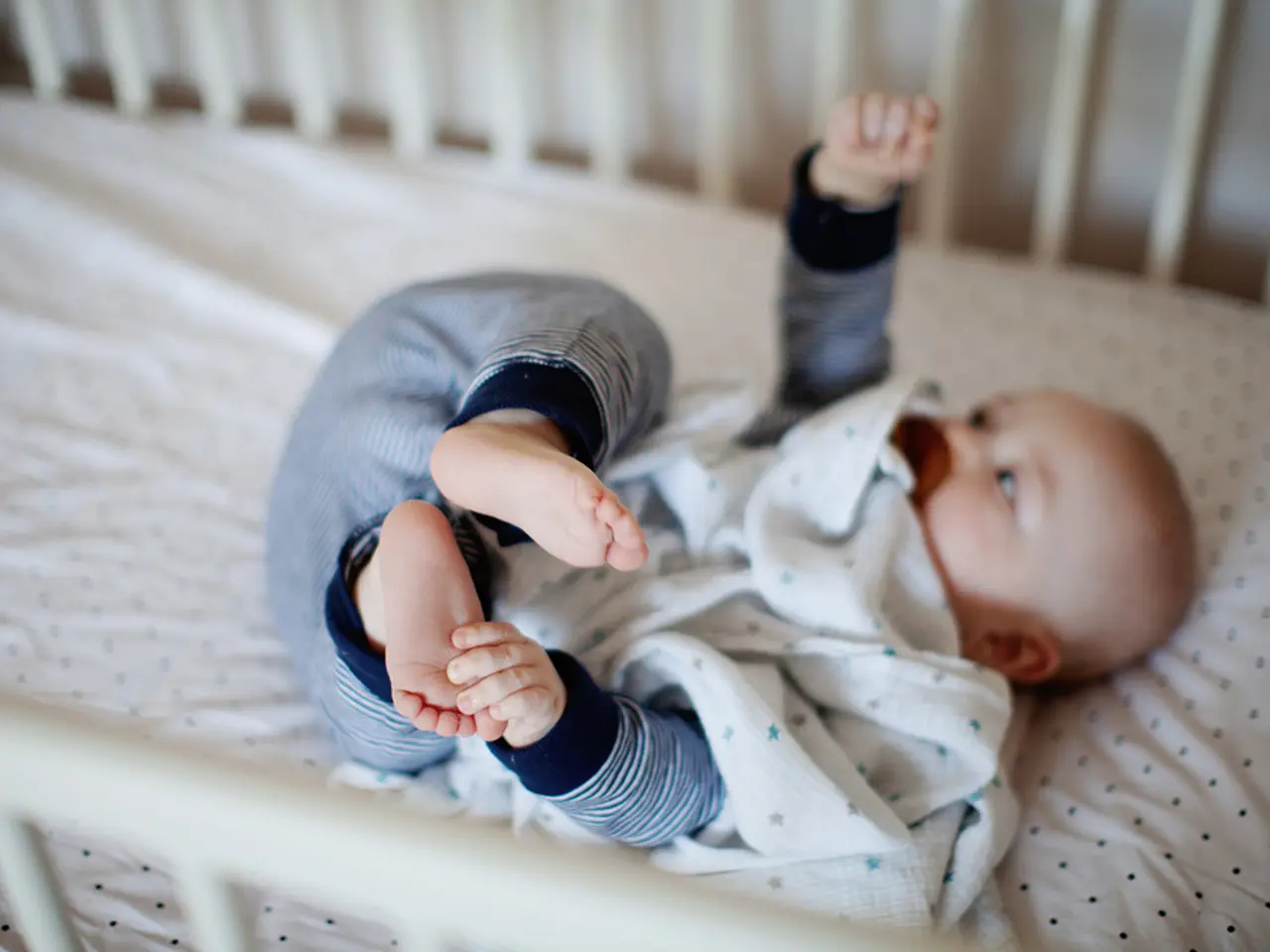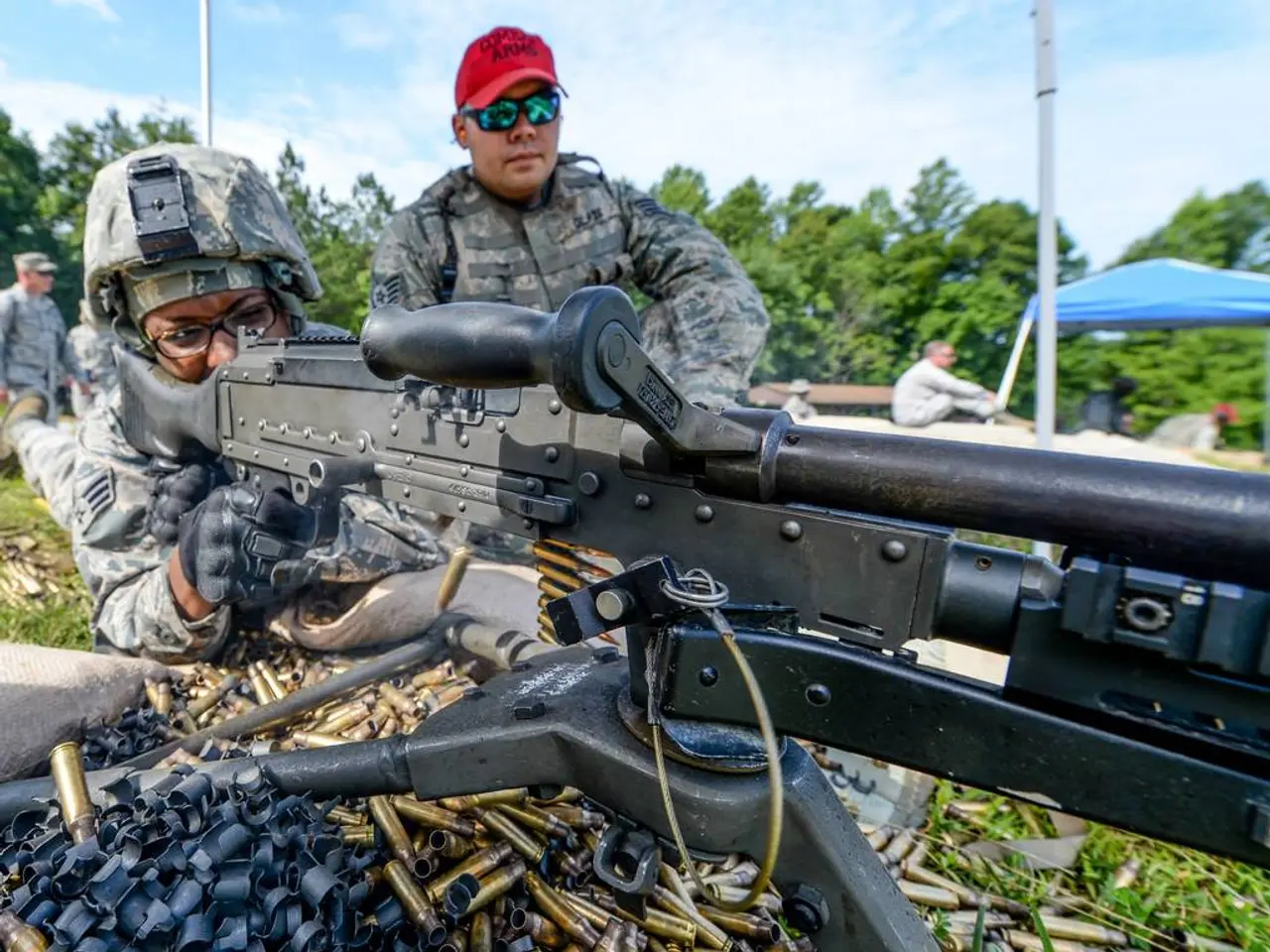Child Slip from Bed: Appropriate Response Strategies
In the event of a fall, it's essential to remain calm and assess the situation carefully. A baby who has fallen off a bed may experience various injuries, including concussions, scalp injuries, or skull fractures.
First and foremost, gently check the baby over, paying close attention to their head for bumps, bruises, or other injuries. If the baby appears to be conscious and does not appear to have any serious injuries, it's fine to pick them up and comfort them. However, if they are unresponsive, have abnormal breathing, or show signs of a head injury, immediate medical attention is required.
Signs of a concussion in an infant include loss of consciousness, inconsolable crying, vomiting, excessive sleepiness, prolonged periods of quietness, a refusal to eat, temporary loss of recently acquired skills, irritability, and a refusal to be held. Infants with a skull fracture may exhibit a depressed area on the head, clear fluid draining from the eyes or ears, or bruising around the eyes or ears.
If the baby shows any of these signs, it's crucial to call 911 or go to the nearest emergency room immediately. If the baby is less than 6 months old or the fall was from a significant height, always seek medical advice promptly.
In less severe cases, closely monitor the baby at home, applying cold compresses as needed and watching for any worsening symptoms. However, when in doubt, it is always safest to consult a pediatrician or go to the emergency department to ensure the baby’s safety.
Rest is the best treatment after any head injury. Parents and caregivers should promote quiet activities for a few days and ensure that the infant avoids rough play. The brain is a delicate structure that can be damaged or injured in a fall.
Scalp injuries can cause bleeding that may look serious but usually go away in a few days. Always put the baby to bed in a crib that has a tight-fitting mattress and sheet, and avoid soft bedding that could trap or suffocate the baby.
Preventing falls is the best way to keep a baby from getting a head injury. After a fall, it is important to re-evaluate safety and child-proofing in the home. Never leave a baby on an adult bed without supervision, and do not place a car seat or bouncy seat on top of an elevated surface.
Understanding and using fall prevention measures can help to stop a fall from happening or reoccurring. By following these guidelines, parents and caregivers can help ensure their baby's safety and wellbeing.
- In cases of a bipolar child, it's crucial to monitor their mental health regularly, looking out for signs of instability or distress.
- The science of multiple sclerosis continues to evolve, with predictive models being developed to help manage the progression of the disease.
- Brain injuries, including those from falls, can lead to long-term health issues, emphasizing the importance of prevention and proper care.
- A mother with breast cancer may need to engage a caregiver during her treatment, ensuring her family-health needs are met while she focuses on recovery.
- Preparing for potential health-and-wellness challenges, such as diabetes or HIV, involves willingness to educate oneself and seek proper medical care.
- Psoriatic arthritis can cause joint pain, swelling, and stiffness, making it essential to maintain overall physical health and seek appropriate treatment.
- Injuries from accidents and falls can be severe, affecting not only the physical health but also the mental health of both children and adults.
- Hepatitis, a liver infection, can be contracted through various means, highlighting the importance of health-and-wellness education for prevention.
- Obesity can lead to a variety of health problems, including diabetes and cardiovascular disease, making it a critical issue in family-health and mental-health discussions.
- Aq (quesadilla), a popular dish in health-and-wellness circles, is typically made with whole grains, lean proteins, and vegetables, making it a nutritious meal option for parenting.
- Cancer treatments can have side effects that impact parenting, such as fatigue, nausea, and emotional changes, necessitating a support system and caregiver during this time.
- The challenges of raising children, managing multiple sclerosis, or coping with a mental health condition can be overwhelming, but support from family, friends, and the community can make all the difference.




